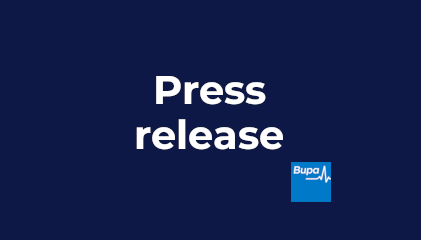Ahead of World Mental Health Day tomorrow (10 October), registered mental health nurse and mother-of-two Kathryn Dee shares her experience as the mother of a teenage daughter diagnosed with depression and offers some advice.
“I wanted to share my story as I want parents to know that they aren’t alone and that even being a medical professional doesn’t mean you get it right all the time.
I am a registered mental health nurse who works in Child and Adolescent Mental Health Services, but when my daughter started to self-harm when she was 15, I reacted as a parent – not a nurse.
I had noticed some of the tell-tale signs of possible depression, such as low mood and some anxieties, but she is outgoing and very talented academically so I put it down to normal teenage angst.
However, it became clear that it was more acute than that when she took an overdose in an attempt to take her own life. I was out and called her to see what her and her brother wanted to eat. Her speech was slurred and she was slow to respond and I just knew what had happened. I don’t remember the journey home but I remember being frantic when I called the ambulance and tried to find out what she had taken. I didn’t respond as a calm nurse. I was her mum and I was scared, angry, upset and worried.
Thankfully she recovered and she was subsequently diagnosed with depression. Despite my training, my reaction was to become upset. I recall telling her that I was worried and didn’t know how to feel. I made it clear that it was always ok for her to talk to me and that I would always listen and that I loved her, which is why I sometimes cried. Most importantly, I promised to be her mum and not her nurse.
My daughter received talking therapy and now, at 25 years old, she sees a psychologist. It is by no means easy being the parent of a child with mental health condition. I still worry about her. But if you’re open and honest, explain your feelings and give your child the space and time to talk, it certainly helps.
My advice to any parents who find themselves in a similar situation is to reach out if you need support. Talk to your GP, a friend or a parent in a similar situation. Talking and giving yourself time to explore how you feel makes a big difference, and allows you to support your child the way you wish.”
Listen to all of our podcasts on Bupa's Soundcloud feed.
About Bupa
Bupa's purpose is helping people live longer, healthier, happier lives and making a better world.
We are an international healthcare company serving over 31 million customers worldwide. With no shareholders, we reinvest profits into providing more and better healthcare for the benefit of current and future customers.
We directly employ around 85,000 people, principally in the UK, Australia, Spain, Chile, Poland, New Zealand, Hong Kong SAR, Turkey, Brazil, Mexico, the US, Middle East and Ireland. We also have associate businesses in Saudi Arabia and India.



